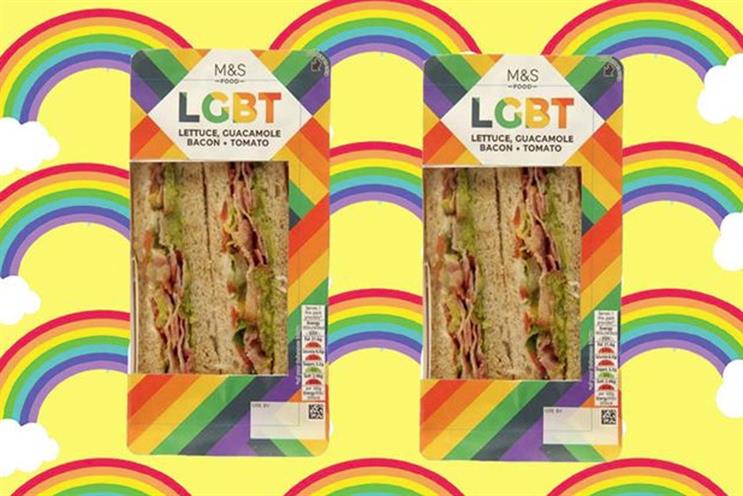2019 was a year of protest, activism and a call to action for our politicians and business leaders to do more when it comes to social and environmental change. At the same time, "purpose" was now being scrutinised by the public and the investor community. "Virtue-signalling" is not enough, as Unilever chief executive Alan Jope rightly pointed out in his landmark speech at Cannes this summer, when he criticised the practice of "woke-washing".
This year saw some great examples of purpose-led campaigning, but also those betraying the brands that used the language and imagery of good causes to increase sales without backing up their rhetoric with action.
Fast fashion using sustainability as a strapline – MISS
Boohoo’s campaign was a big bad example of a brand famous for promoting fast, unsustainable fashion getting woke. The "Dress well and do your bit for the planet" strapline sat uneasily and was completely at odds to the £4 dresses for sale on the site. For purpose to work, brands need to get serious about their environmental impact and explore ideas that are integrated into their business and will deliver results, rather than focus on attention-grabbing one-offs.
'LGBT' sandwich – MISS
"Rainbow-washing" became a term this year. A great example of a Pride misfire was Marks & Spencer’s divisive launch of a guacamole and bacon sandwich to mark the festival. Consumers saw the surface-level nature of this campaign and its glossy rainbow packaging, criticising the fact that the sandwich had no inherent link to LGBT+ people. When it comes to purpose work, creating a one-off product to represent a deeply personal movement is always going to be tricky.
Glossy soapbox – MISS (but moving in the right direction)
The biggest woke-wash debate was around the Gillette "toxic masculinity" campaign. Initially, it felt pretty one-sided – it was a big fail. However, as the conversation continued, some felt the fact that the subject was being debated was at least a positive. And Gillette has continued supporting the campaign, which shows genuine intent and investment.
However, the glossy treatment of the ad jarred with the serious issue being addressed and, despite some hefty donations to partner charities, it wasn’t clear how this initiative was being supported internally through the actions of the business. It means a "purpose gap" was on public display.
Tangible action informing incredible creatives – HIT
Notable activist initiatives this year include The Guardian’s "The polluters" campaign, which has taken powerful strides to not only report on but take action on climate change. It has included naming and shaming the 20 biggest environmental polluters and releasing an based on votes against climate policies.
This is well-aligned with internal changes The Guardian is making. It is now a B Corp. It has recently committed to playing a leading role in reporting on the environmental catastrophe through changing the images and wording it uses to reflect the severity of the climate crisis. Its new "Hope is power" campaign is a brilliant creative, founded on impressive moves from within The Guardian to take a stand on what really matters.
Be bold if you can back it up – HIT
The Oatly campaign is a great example of a brand taking a bold stance in the name of protecting the environment – and growing its sales. The irreverent and open tone of the campaign, which squarely targeted the milk industry, was bold, challenging and direct.
The campaign also influenced the brand’s corporate communications, with its annual sustainability report stating that Oatly had performed "slightly worse than last year" on the front cover – a bold move compared with virtually every sustainability report out there. The brand could do this because it was shouting about a brand purpose that was already in its DNA.
Be topical, but don’t forget the bigger picture – HIT and MISS
We were undecided about Burger King’s campaign. On one hand, it is a smart, timely campaign around single-use plastic toys and brilliantly highlights McDonald’s inaction in this area. The "amnesty" on toys will contribute to the products being recycled into new plastic trays and play areas in restaurants, taking plastic out of landfill. It also forms part of a broader plastic-reduction strategy by the business, so it is definitely not just a PR stunt.
However, the campaign launched at the same time as the world watched wildfires destroying parts of the Amazon and Greenpeace accused Burger King directly of contributing to this crisis. Burger King has denied the claims, but the focus shifted away from plastic toys to the impact of its core product and what the business was doing to reduce it. This is the challenge of delivering purpose-led marketing. Publicly announcing your credentials in one area often leaves brands vulnerable to deeper interrogation and you need to be ready for this at an operational level.
In an age when social media means brands must be more transparent than ever and consumer mistrust is often the default position, brand purpose is a powerful agent for delivering business growth. But it is essential that organisations approach brand purpose with genuine substance. The key is action and authenticity. It is about openness, honesty and, critically, actually doing something credible – not just talking about it.
Becky Willan is managing director at Given London


